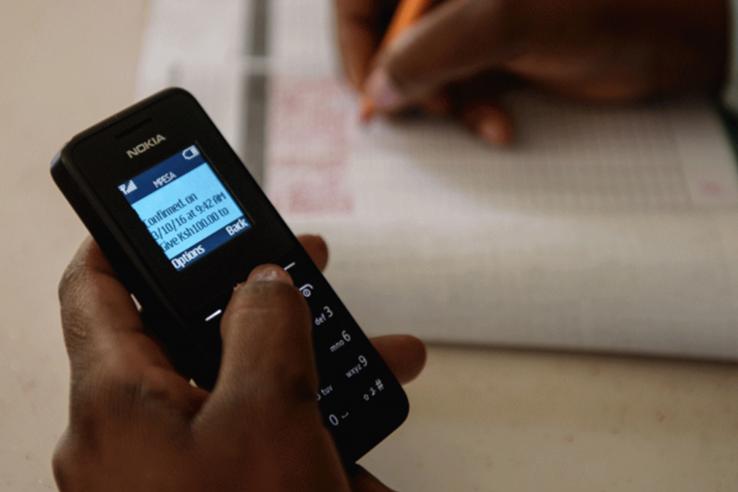August 2019 Newsletter

J-PAL Africa launches Digital Identification and Finance Initiative (DigiFI Africa)
Governments across Africa are rapidly expanding their use of digital payments and biometric identification systems to better target and deliver government services to citizens. DigiFI Africa, J-PAL Africa’s first research initiative, will fund high-quality, policy-relevant randomized evaluations that study the impact of large-scale digital payment and ID systems on governments and citizens’ well-being. Read more »
Empowering citizens with information
In Indonesia, J-PAL affiliated professors Abhijit Banerjee (MIT; Director, J-PAL; Scientific Director, J-PAL Africa), Rema Hanna (Harvard; Scientific Director, J-PAL Southeast Asia), and Benjamin A. Olken (MIT; Director, J-PAL; Scientific Director, J-PAL Southeast Asia), with Sudarno Sumarto and Jordan Kyle, found that sending households official ID cards with information about benefits they were eligible to receive from a national subsidized rice program led to a 26 percent increase in benefits received and a large reduction in program leakage.
Informed by these results, the government scaled up social assistance ID cards to 15.5 million households, reaching over 65 million people. Read our Briefcase »
J-PAL North America launches Evaluation Toolkit
J-PAL North America recently launched an online evaluation toolkit to support research teams in designing and implementing randomized evaluations in the United States. This toolkit includes fourteen free resources, like guides for using administrative data and conducting power calculations, and draws on the expertise of J-PAL staff and affiliated researchers who have run more than eighty randomized evaluations in North America. Read more »
UPCOMING TRAININGS
MicroMasters program launches first elective course this fall
Political Economy and Economic Development, a new elective course in the MicroMasters in Data, Economics, and Development Policy (DEDP), is taught by Abhijit Banerjee (MIT; Director, J-PAL) and Benjamin A. Olken (MIT; Director, J-PAL) and explores why and how political institutions affect economic development. The course applies key theories and empirical techniques to real-world examples ranging from voting and corruption to the role of the media. Learn more »
The next semester of our online MicroMasters in DEDP begins September 3. Through a series of five online courses and in-person exams, learners gain a strong foundation in microeconomics, development economics, and probability and statistics, while engaging with cutting-edge field research. Students who complete the full DEDP credential are eligible to apply for the blended master's program in DEDP at MIT. Register today »
FEATURED PUBLICATION
Promoting housing choice to improve economic mobility
J-PAL affiliated professors Raj Chetty (Harvard), Nathaniel Hendren (Harvard), and Lawrence Katz (Harvard; Scientific Director, J-PAL North America) evaluated the US Department of Housing and Urban Development’s Moving to Opportunity program. They found that helping families with young children move to lower-poverty neighborhoods improves later-life outcomes for children and may reduce intergenerational poverty.
Their findings have led to local and federal policy change in the United States, which together have shifted more than $28 million in funding towards housing mobility services and expanded housing choice for tens of thousands of low-income families. Read our case study »
MEDIA HIGHLIGHTS
A research spotlight on some of the world’s vulnerable people
UCLA Newsroom
UChicago to study police-involved shooting, officer training
WTTW News
Opinion: NGOs—here’s how to strengthen your engagement with governments
Devex
How MTV can help drive social change
Live Mint
Study leverages peer effects to encourage adoption of hygienic latrines
Yale Insights
NEW RESEARCH PAPERS
Medium- and long-term educational consequences of alternative conditional cash transfer designs: Experimental evidence from Colombia
Felipe Barrera-Osorio, Leigh L. Linden, Juan E. Saavedra
Group-based cognitive behavioral training improves mental health of SME entrepreneurs: Experimental evidence from conflict-affected areas of Pakistan
Priyam Saraf, Tasmia Rahman, Julian Jamison
Reducing child mortality in the last mile: Experimental evidence on community health promoters in Uganda
Martina Björkman Nyqvist, Andrea Guariso, Jakob Svensson, David Yanagizawa-Drott
School-based management and learning outcomes: Experimental evidence from Colima, Mexico
Vicente Garcia-Moreno, Paul Gertler, Harry Anthony Patrinos
FEATURED JOBS
Undergraduate Policy and Communications Intern, J-PAL Global, Cambridge, MA, US
Senior Administrative Associate, J-PAL Global, Cambridge, MA, US
Data Publication Intern, J-PAL Global (Remote)
Human Resources Administrator & Recruiter, J-PAL North America, Cambridge, MA, US
Research Associate, CaTCH, J-PAL South Asia, Gujarat, India
Communications Associate, J-PAL South Asia, New Delhi, India
Explore open positions around the world »
The Abdul Latif Jameel Poverty Action Lab (J-PAL) is a global research center working to reduce poverty by ensuring that policy is informed by scientific evidence. Anchored by a network of more than 180 affiliated professors at universities around the world, J-PAL draws on results from randomized impact evaluations to answer critical questions in the fight against poverty. We build partnerships with governments, NGOs, donors, and others to share this knowledge, scale up effective programs, and advance evidence-informed decision-making. J-PAL was launched at the Massachusetts Institute of Technology in 2003 and has regional centers in Africa, Europe, Latin America & the Caribbean, North America, South Asia, and Southeast Asia.